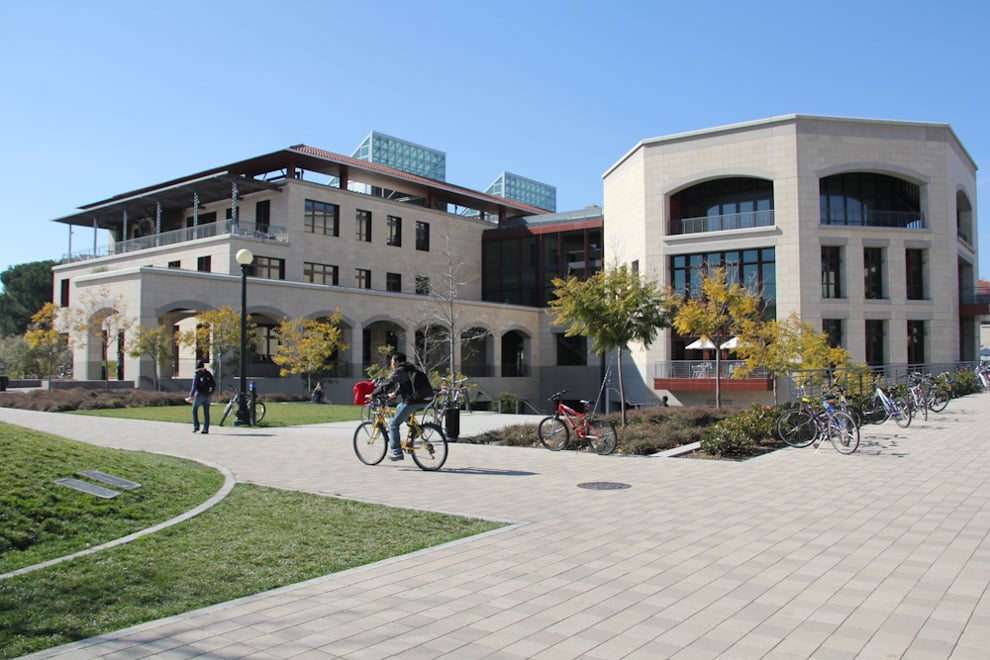“We have a set of values that are very much revolving around being creator first,” Sam Yam B.S. ’06 M.S. ’06 says of Patreon, an online crowd-sourcing platform for creators of all types — including podcasters, photographers, YouTubers and chefs. Yam, Patreon’s Chief Technology Officer, spoke at Stanford’s Entrepreneurial Thought Leaders Seminar (MS&E 472) on Jan. 15.
Many of the jobs that didn’t exist a couple years ago exist today as a consequence of digitalization. For example, YouTube was founded in 2005, and Twitch, a video streaming service used by video gamers, was founded in 2007. Today, being a Twitch streamer and Youtuber can be a lucrative occupation, with some content creators on YouTube generating an estimated revenue of millions of dollars a year.
While a platform serving such communities may have been inconceivable in the early 2000s, Yam believes Patreon presents an opportunity to fuel the growing market. To quote Yam, Patreon is built on “the notion that creating is a valid career choice and one that is sustainable.”
Yam claims that his initial pitch in 2013 when founding Patreon hasn’t strayed much from his pitch today. In fact, Patreon, while encouraging its content creators to imagine the future of work, builds off of methods that don’t stray far from the traditional business model. As he crosses the streets of New York, Yam said, he sees traditional methods of “taking celebrities and using them to market products, but with a whole new generation of digital influencers.”
According to Yam, digital influencers are more attuned to the rockiness of the space they inherit. They are deeply connected to platforms like Facebook, YouTube and Instagram, which upon a design or product update can drastically affect their visibility and financials. Yam thinks this volatility “forces them to search for alternative methods to sustain themselves and Patreon presents an elegant solution to that.”
Patreon’s model of recurring membership payment aims to increase predictability in a content creator’s income. Unlike Facebook, where insight and mobilization of fans beyond the platform is limited, creators on Patreon have the ability to engage their supporters beyond the platform, via mailing lists, in-person meet-ups and Q&As. It is this kind of “tooling layer” that “grants more ownership to creators around the community and business that they are building.” Patreon adds to the array of digital services that creators come to depend on, but at the very least their value-add to creators is being a dependable source.
The job that creatives and digital content creators have, managing their own schedule and producing content susceptible to the volatility of the Internet, is almost by nature unpredictable — so why does Patreon believe this could be the future of work?
Yam’s job is to demonstrate that there is a large enough market and his confidence is rooted in the belief that if we are freed up from automated and repetitive work, then what remains is “creativity and human connection.” Those on the edge of digitalization and rapid technological change may occasionally be at the whim of external forces, but that may also be the best example of how work will evolve and compete. If the work of creatives is the future, “it is important to figure out how to sustain and reward these people for their work.”
There is a large portion of individuals who altruistically donate money to support creatives. However, Yam notes there are also audiences that pay into a community for the purpose of learning, attaining advice and accessing a role model. The return on investment doesn’t have to be centered around donating.
Yam believes that there is a value exchange, a worth that comes out of supporting a cause and being a part of a community. For him, specifically, supporting people and businesses, like food enthusiast Steven Lim and entertainment company Kinda Funny, brings him a source of inspiration.
But inspiration isn’t something new to Yam. During his time at Stanford, when he noticed students were restricted access to In-N-Out burgers due to a car policy at the time, he created a website to facilitate deliveries. Yam recalls the high reward of technology startups seeming quite accessible at the time: “People looked at [Facebook and YouTube] and were like ‘I don’t get why that’s worth so much. It seems doable to me as an undergraduate to achieve that level of success.’”
Contact Chloe Barreau at cbarreau88 ‘at’ stanford.edu.
